SPRING
EXAM TIME
The do’s and don’ts of parenting during exam time

Crucial skills for success
Turn down the heat
How to stop being an angry parent
20
OVERCOMING OBSTACLES
Dyscalculia: More than a maths struggle
fun spring activities





















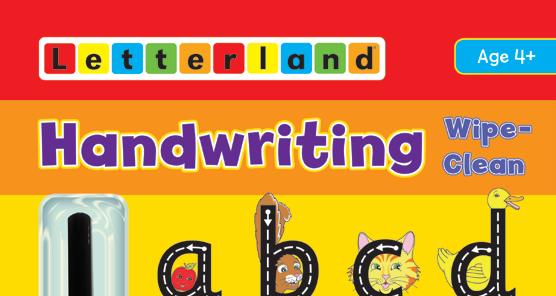














































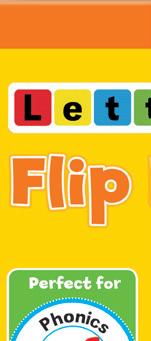















































SPRING
The do’s and don’ts of parenting during exam time

Crucial skills for success
Turn down the heat
How to stop being an angry parent
20
Dyscalculia: More than a maths struggle
fun spring activities



















































































































Our degrees are internationally recognised.
Our alumni are highly sought after.
We have support programmes to assist our students to succeed.
We help to prepare you for the world of work.

www.up.ac.za/programmes/type/ug

Choosing to homeschool is a decision that requires plenty of consideration. These are the questions that parents typically ask about it.
The do’s and don’ts of parenting during exam time
Most parents will agree that assessment time is very challenging, not only for pupils, but also for parents and guardians.
Dyscalculia: More than a maths struggle

While it’s not uncommon for South African children to struggle with mathematics, more awareness is needed of a learning disorder called dyscalculia.

Ask Dalena
Dalena van der Westhuizen answers questions and concerns from parents about learning, concentration, memory and cognitive development.
Turn down the heat
How to stop being an angry parent.

In a world that’s constantly evolving, there’s no greater gift a parent can give a child than the ability to be financially independent.
My online learning journey – so far

It’s Keemaya Naidoo’s second year as an online student and it’s a journey that she enjoys, values and recommends.
Unleash your child’s critical thinking through art
Desirée Hugo explains practical ways to go about art education and appreciation that will help develop a child’s critical thinking skills.
42
Planning and prioritising

Crucial skills for initiating tasks and following through.

20 fun spring activities
Shake off the winter blues and try any of these fun activities that will have the whole family enjoying the new season.
46
In today’s ever-evolving digital landscape, the demand for skilled data management professionals is increasingly apparent.
Cooking and bonding Spring salads everyone will love!

The perfect team sport Soccer promotes teamwork among kids and helps them get along with others outside the sport too.

As parents, we have big hopes and dreams for our children. We want them to be happy, healthy, successful and kind.
All parents know that there’s no shortage of quandaries to solve when it comes to raising children and often our hearts begin to fill with self-doubt: “How do I teach my children to care, to have conviction, to make change?
Am I doing this parenthood thing correctly? Will the values that I hold dear be passed on to my kids? How do I raise children who’re compassionate and caring?”
The arrival of spring – a time for planning your garden and planting new seeds – reminded me that parenting is very similar. Growing weeds requires no attention or effort at all, but growing a beautiful, colourful garden takes constant attention and effort.
It takes a lot of nurturing to plant seeds and water them not only with love, but with wisdom. Sometimes it requires pruning in ways that seem to hurt us even more than our children.
Like a gardener tending his garden, as parents, we can help our children become the best versions of themselves. Often, we have to graft in things that we want to take root in their lives, much as a master gardener grafts different plants onto a strong and sturdy root.
Gardening requires patience and optimism, though patience is hard when you can’t see the seeds taking root beneath the ground. We simply have to trust that what we planted will eventually see the light of day. And usually, just when we think nothing’s happening, little shoots begin to emerge –small signs that a glorious display of colour is coming. Colours of kindness, compassion and love.
Editor Adri Viviers | adri@isikhova.co.za
Managing Director Imraan Mahomed imraan@isikhova.co.za
Director Jenny Justus jenny@isikhova.co.za | 083 450 6052

Creative Director Joanne Brook joanne@isikhova.co.za
Operations Director Thuli Majola thuli@isikhova.co.za
Copy Editor Anne Phillips
Advertising Sales 011 883 4627
Recognised as a homeschooling stakeholder by the Department of Basic Education
Officially endorsed by CNA as its preferred homeschooling media partner
Subscriptions & General Enquiries: sahomeschooling@isikhova.co.za
SA Homeschooling magazine is independently published by Isikhova Media (Pty) Ltd, 10th Floor, Metal Box, 25 Owl St, Milpark, Johannesburg, 2193, South Africa Tel: 011 883 4627 | www.isikhova.co.za
The views expressed in this publication are not necessarily those of the owners, the publisher, contributors or their agents. While every effort has been made to ensure the accuracy of its contents, neither SA Homeschooling magazine, the owners, the editor, the publisher, media alliance partners nor any of its endorsed organisations or contributors can be held responsible for any omissions or errors; or for any misfortune, injury or damages which may arise therefrom. The same applies to all advertising. SA Homeschooling magazine © 2023. All rights reserved. No part of this magazine may be reproduced without prior written permission from the publishers.
savvy thinkers smart doers together people

Choosing to homeschool is a decision that requires plenty of consideration and shouldn’t be taken lightly. These are the questions that parents typically ask about it
Considering educating at home or being new to homeschooling, you probably have many questions that need answers. Here are some of the top questions (and their answers):
Should my children be registered with the Department of Education if I choose to homeschool? Under the South African Schools Act, parents have the right to homeschool their children. However, they must register with the Department of Basic Education within three months of starting. It’s advised that parents join the Pestalozzi Trust to assist them with the legal aspects of home education, so that they can educate their children with peace of mind.
1 2

Do I need to be a qualified teacher?
No. Research has found no correlation between the qualification of the parent and the academic performance of the child. Instead, it shows that parental involvement is the
variable which has a positive effect on a child’s performance. Even parents who haven’t matriculated can homeschool their children up to matric level.
3
How do I choose the right homeschool curriculum for my family?
This is probably the number one question homeschoolers ask. Choosing the best programme or curriculum for your family can be challenging, especially when there are so many options available.
It’s essential to find one that’s the right fit for both you and your children; something that will keep them engaged, motivated and excited to learn. Before making a decision, consider your teaching style, your children’s learning preferences and their academic goals. Don’t be afraid to try different programmes and take advantage of the free trial periods that many offer. As you explore different options, remember that finding the right programme or
curriculum for you and your family is a journey, so take your time.
Where can I find resources and support for homeschooling in SA? As a homeschooling parent in SA, finding support can be a daunting task. However, with a little research, you’ll find that there are plenty of resources available to help you along the way. The Homeschooling Hub is a great resource for finding curricula, classes and support groups in your area. Additionally, the Homeschooling Association of SA offers guidance and support for homeschooling families, as well as yearly conferences and events. Reach out to other homeschooling parents in your community, as they can provide invaluable advice and support.
4 5 6
What about matric and tertiary education? There are a number of ways that home pupils can get a matric. One of the most popular options is the academic one, where they can choose either the South African curriculum or the Cambridge curriculum.

Pupils can get a South African National Senior Certificate (NSC) through a number of curriculum suppliers.
An increasing number of parents choose the Cambridge International Examination (CIE) matric, offered via Cambridge University. In SA, students can do two courses, namely IGCSE and AS Levels. In broad terms, the Cambridge IGCSE qualification is equivalent to a South African Grade 11 and the Cambridge AS Level is equivalent to a South African Grade 12. This qualification is acknowledged by the matriculation board and can be used to get admission to university.
Will my child receive proper socialisation if I homeschool?

At one time, this
was the top question about homeschooling. More recently, homeschooling parents have realised that socialisation isn’t an issue. There are many ways to keep your child socialised, including participating in sport, playdates and community-based classes and gatherings.

Most parents will agree that assessment time is very challenging, not only for pupils, but also for parents and guardians, who want to support their children as best they can to perform optimally
Given our current circumstances in South Africa, households are already under immense pressure, which means parents and guardians have even less bandwidth than before when assisting their children. “A casual glance at parenting groups on social media platforms attests


to the various challenges parents face regarding providing the proper support and motivation without risking increased tensions,” says Dr Linda Meyer, MD of the Independent Institute of Education’s Rosebank College.

She says the first – and most important – thing for parents to do is ensure they manage their own emotions and expectations before stepping in to provide support.
“Parents should ensure that they’re calm and positioned to be a pillar of support, rather than presenting as another challenge for the child to over-
come. One way to achieve a more even emotional keel is to keep the educational journey in perspective, because a child’s education is a journey, not a single be-all-and-end-all event, and there’s always room to grow, develop and improve.
“Cultivate an understanding that even though the stakes are high, particularly for pupils in senior high school, there’ll always be avenues open for moving forward. Achieving this more balanced understanding will help parents not to catastrophise and pre-empt outcomes or worst-case scenarios, but rather to assist
their child calmly, with both the logistical and holistic support they need at this time.”
Meyer says parents can help create the optimal study experience by way of the following:
• Time management. Be on top of the pupil’s assessment schedule and help them devise a realistic study plan. If everyone’s on the same page regarding what needs to be revised by when, both pupil and parents are less likely to get anxious about the passing of time. It’s not helpful to keep reminding the child to study if there isn’t a solid plan in place.


• Mock papers. Assist children by sourcing mock exam papers and replicating an exam environment at home for paper-writing practice. Emphasise that the exercise aims to practise the art of writing in specific circumstances. Reviewing the results of the mock home exam provides
an opportunity to identify areas that need further attention. Take away the pressure of believing that the aim is to achieve top marks at home.
• Be available for assistance. Offer support when your child needs help understanding a concept, reviewing material or organising their study plan. However, encourage independent problem-solving and critical thinking skills.
• Limit excessive screen time. Recognise that screen time is often an avoidance mechanism that gives rise to prolonged procrastination. Set
clear boundaries to ensure that technology’s used as a helpful tool or reward, rather than a distraction and that it doesn’t negatively impact the agreed-upon study schedule.

• Environment. Create, as far as possible, a peaceful and supportive environment. Given the demands, challenges and high stakes associated with exams, that isn’t always easy, but it remains a goal worth striving for. Pupils can focus and apply themselves better when additional anxiety and stress are reduced, and they know they’re supported.
• Encourage a balanced routine. Help your child establish a balanced routine that includes sufficient time for studying breaks, physical activity and rest. A well-planned schedule can reduce stress and improve productivity.

• The fundamentals. Parents should ensure that their children get enough sleep, outside time and exercise, and opt for healthy foods as far as possible. Try to steer them away from late-night or early-morning cram sessions fuelled by energy drinks and other stimulants.
• Foster open communication. Create an atmosphere where your child feels comfortable discussing their concerns, challenges and progress. Encourage them to ask for help when needed and be an empathetic listener. Be willing to hear them without judgement or jumping in to solve the problem when a child wants to talk about their fears and
worries. If they show signs of frustration, remind them to take a break and join them in sitting outside or going for a walk.
• Offer positive reinforcement. Recognise and appreciate your child’s efforts, progress and achievements. Positive reinforcement can boost their motivation and self-confidence.
“Parents should remember that every child is unique and that adapting the above guidelines to suit their child’s needs and learning style is essential. Supporting them emotionally and creating a positive environment will help them navigate exam time more effectively,” says Meyer.
“While it’s important to emphasise the significance of exams, avoid putting undue pressure on your child, as unrealistic expectations and sustained criticism and conflict around studies can lead to

increased anxiety and decreased performance. Also, instead of focusing only on outcomes and achievements, emphasise the value of learning, personal growth and resilience.”
Dr Linda Meyer is the MD of the Independent Institute of Education’s Rosebank College. She has held several executive roles in the public and private sectors and is a member of the SAQA board. She holds several qualifications, including a Doctor of Philosophy (RSA), Doctor of Business Administration (USA), Master of Business Administration (UK), Post-Graduate Diploma in Management Studies (UK), Bachelor of Business Administration, B Com (Law) and several other diplomas, higher certificates and professional certifications.







Dyscalculia is a learning disorder that affects an individual’s ability to understand and manipulate numbers and mathematical concepts, similar to the way dyslexia impacts reading. In SA, there’s little awareness of this condition, so there’s a lack of diagnostic and remedial resources for people afflicted by it to receive the support they require.
Dr Lindiwe Mokotjo, Deputy Dean: Academic Development Support at IIE Rosebank College, a brand of the Independent Institute of Education, says children often find maths challenging, primarily because of preconceived notions about the subject based on interactions throughout their educational journey from a young age.

While it’s not uncommon for South African children to struggle with mathematics during their educational journeys, more awareness is needed of a learning disorder called dyscalculia to ensure that children afflicted by it are able to access the help they need timeously and effectively
“These negative perceptions often inform their overall attitude towards maths, thereby creating a barrier to effective learning. Furthermore, I’ve observed a direct correlation between students’ failure rates and an information gap, which hinders their understanding of mathematical concepts. These as well as other factors could induce maths anxiety and developmental dyscalculia,” she notes.
She says there’s ongoing research which delves deeper into dyscalculia globally, including – to a limited extent – in SA. It’s postulated that dyscalculia

could be as prevalent as dyslexia (affecting an estimated 5-10% of the population) and that its impact is equally critical. There’s also a persistent global concern –particularly in SA – regarding the subpar performance of students in maths generally.
Basic numeracy skills are essential in our day and age for everyday functions such as shopping and budgeting. However, says Mokotjo, there are also undeniable benefits to it that many take for granted – and from which dyscalculic individuals are excluded.
“It can therefore be argued that dyscalculia extracts a financial cost from government and society, in addition to the personal cost for individuals,” she adds.
Recent research from the UK revealed that individuals with poor numeracy skills experienced

several detrimental effects, including lower income levels, with the resultant impact on livelihoods, increased likelihood of illness and legal prosecution, and a greater need for educational intervention. The study estimated that the economic impact of low numeracy skills in the UK amounted to over £48 billion.
This raises a question regarding the corresponding impact in South Africa, which is arguably higher.
One option is to seek the assistance of a learning specialist or educational psychologist. These professionals can provide an assessment to determine the presence and extent of the child’s dyscalculia and recommend appropriate accommodations and interventions. Some universities and schools may also have learning support centres that offer assistance to students.
“In addition, there are various technological tools that can help, such as maths apps and software programs that provide visual representations of mathematical concepts, as well as tools that can read maths problems aloud to the user. There are also assistive technologies such as calculators, abacuses and the Active Learning Strategy,
which help kids develop a basic understanding of basic maths and calculations,” says Mokotjo. She stresses that while dyscalculia can pose challenges, it doesn’t define an individual’s abilities or limit their potential.
“With the right support and accommodations, individuals with dyscalculia can succeed academically and in their daily lives. It’s also important that individuals with dyscalculia understand the condition and are themselves able to seek the support they need to thrive,” she says.
Thus far, the exact prevalence of dyscalculia in SA hasn’t been determined. Studies on learning difficulties in the country have focused mainly on dyslexia, with comparatively little research on dyscalculia.
“It’s therefore essential that more research is undertaken to better understand the prevalence of dyscalculia in SA and to develop effective strategies for identifying and supporting individuals with this condition,” says Mokotjo.

“It’s essential that more research is undertaken to better understand the prevalence of dyscalculia in SA.”









Dalena van der Westhuizen will answer any questions or concerns you may have about learning, concentration, memory and cognitive development –and, of course, the frustrations arising from these
Should parents play a role in helping their children choose subjects? –
Gail BrennanHi Gail,
While children are on many different levels of independency, most children are, in my opinion and experience, not yet independent and experienced enough to make subject choices completely on their own.

Lack of knowledge about themselves and their future career preferences, the demands of industry-specific tertiary study requirements and the tendency to sometimes choose with their heart (only subjects I like or find easy) instead of their head
(do these subjects also support what I want to study/do one day and allow me options?), are all strong indicators that in most instances, parents should definitely play a guiding/ facilitating role in this process.
My 12-year-old daughter struggles with anxiety when it comes to schoolwork. What are some of the risk factors/triggers for anxiety and how can I help her? –
 Sandy Thomas
Sandy Thomas
Hi Sandy, Schoolwork-specific anxiety is usually caused by one or a combination of the following:
• Unrealistic expectations (self and/or parents)
• Comparison with highperforming siblings (self and/ or parents)
• Weak cognitive skills (underlying brain skills for learning; effort doesn’t show in the output)
• Peer pressure
• Low self-esteem
• Previous bad academic experiences
The best way to help your daughter would be to work through this list to eliminate or pinpoint the cause(s) of her schoolwork anxiety. Explain this to her in an age-appropriate way and get her involved in the process as much as possible. In my experience, for the majority
of children with schoolworkspecific anxiety, a weak cognitive skill(s) is the major cause of the anxiety. A cognitive assessment would thus be a strong recommendation as a first step towards helping your daughter.
How much schoolwork should young kids be doing every day? –
Annemie GroblerHi Annemie,
There’s an ongoing debate and conflicting information about this in educational circles. In my opinion, reframing the focus of schoolwork instead of the time spent on it daily, might yield an appropriate guideline for your child/children.
An approach growing in popularity is that perhaps the amount of time a child spends on doing schoolwork every day is actually not that important. Instead, the focus should be on “what do I need to do?” or “what do I want to achieve today?”
For students to achieve what they should be doing, they need to have a plan and know what they need to get done each day – this could be a to-do-list, task list or a set of outcomes they would like to complete. In other words, a student (and parents) need to focus on the quality of the schoolwork done (quality output) and not the quantity (time spent doing it).
My child insists on doing schoolwork in the living room or kitchen where we all are. Is this a bad idea? –
Sarah SchliebenHi Sarah,
According to most studies on learning and learning spaces, silence really is golden when tackling the most difficult tasks. When learning or analysing highly complicated material, our brains process information significantly more quickly without ambient noise.
Some studies have shown that students who studied on their own tended to get better grades than those who studied in a busy environment (with multiple people). However, for some students, without other people around to hold them accountable, they may procrastinate, lack motivation and easily get sidetracked by other things.

Most children aren't good at ignoring distractions, paying attention and keeping their focus
About Dalena

Dalena van der Westhuizen is the co-founder and MD of BrainAbility, a cognitive development specialist, a master brain coach and an internationally certified cognitive coach. She translates the latest international cognitive research and best practice into strategies that can be applied by parents and educators alike.

A mom and a self-confessed chocoholic, Dalena enjoys working with both kids and adults to improve the way their brains process information for better learning, reading and focusing.
Send your questions for Dalena to: adri@isikhova.co.za.
in a busy environment. My advice would therefore be to find the golden middle-ground here.
Do you find yourself asking: “Why am I often angry with my kids?” The answer’s really simple: because parenting is hard. It’s probably the most significant challenge we face in life because it’s all-encompassing, all-important and, at times, overwhelming. There’s no onesize-fits-all solution to the myriad of difficulties associated with being a parent.
If you’re a parent who struggles with anger, you’re not alone. Luckily, there are steps you can take to control your temper and strengthen your relationship with your child.

Many life situations or our own childhood traumas can trigger anger in the present moment. First, know that anger is a normal emotion. If you’re a living, breathing human being, you’ll become angry about something at some point – and that’s OK. It’s normal. It’s what you do with that anger that will lead you to despair or to hope.
By learning more about anger and healthier ways of expressing it, you can reduce the frequency with which you “lose it”.
Understand why you’re angry. Are you taking things too personally? Are you stressed out about something? Are you emotionally drained and in need of recharging? Are your
We’ve all been in the anger zone when stress levels are high, patience is thin and our kids are pushing every button we have. Before we know it, we’re yelling at them, even after promising ourselves we’d never do that
expectations too high? Has being angry simply become a bad habit that you can’t seem to break?
Take a break. When you feel anger bubbling up, leave the room. It’s OK to take time out in your room, rather than exploding in fury at your family. Actually, it’s best for everyone involved.
Identify the triggers. It’s important to recognise what triggers your anger so

that you can try not to let it get out of control. Identifying what you’re really angry about can help you reduce it. However, this is sometimes not so simple. For example, if you find yourself flying into a disproportionate rage whenever your son playfully teases his younger sister (even though she takes it in good fun), it might be evoking memories of you being bullied when you were a child yourself.
Apologise. It’s very humbling to have to admit that you let your anger get the best of you. However, your children need to know that you truly regret losing your temper and that you’re trying to change your behaviour.
Take a break from social media. Parenting can appear effortless and perfect on social media. This can have a negative effect on your mental health,


“If you’re a parent who struggles with anger, you’re not alone. Luckily, there are steps you can take to control your temper and strengthen your relationship with your child.”
as it causes you to compare your parenting skills and accomplishments with those of others. Limit your use of social media or take breaks from it to help you get perspective. Repeat after us: “There. Is. No. Such. Thing. As. A. Perfect. Parent. Period.” Have realistic expectations. Setting unrealistic expectations for ourselves (and our children) can lead to disappointment and regret, which in turn can quickly turn to anger. It’s important to recognise what’s within your power and to be realistic

about what you (and they) can accomplish on any given day.
Take care of yourself. Parents have a lot on their plate, including work commitments, financial worries and family obligations, which can lead to anxiety. This can cause stress and lead to increased irritability and even outbursts of anger when things don’t go as planned or someone does something


to upset or frustrate you. Make sure you do something just for yourself too – like reading a book, having a pedicure or treating yourself to a cappuccino at your favourite coffee bar –so that you can recharge your batteries and feel better about being a parent again.
Set boundaries and ask for help. It’s important to set clear boundaries with your children and yourself so that everyone knows what’s expected of them. This helps keep things in check and also gives you a break from the daily demands of being a mother. Don’t be afraid to ask for help or delegate tasks, when needed.


Experience a new era of education where distance is no barrier to excellence. A stimulating learning experience that nurtures critical thinking and independence. Moore House Academy is here to revolutionise the high school learners’ education journey with our cutting-edge online education platform. The online platform offers engaging CAPS
Aligned Tests, Tasks and Examinations to allow your child to excel academically while enjoying the flexibility of learning from home.


Reports
Reminders
Subject Quiz's
Annual Planners
Register Now and receive 2023 Fees.
(Upfront Payment OnlyValid until 1 October 2023)
Course Packages
Direct Messaging Completion Progress
Statement of Results
Feedback Comments info@moorehouse.co.za - www.moorehouse.co.za

Measuring Academic Progress (MAP) International Benchmarking evaluation enables schools to objectively compare their students’ performance against peers in other institutions and countries. It offers a comprehensive tool to gauge teaching and learning effectiveness while monitoring consistent student growth.
Online education has become a viable choice for parents seeking flexible and personalised learning options for their children. However, the variance in academic outcomes among online schools is considerable. Some institutions excel, while others disappoint. Thus, parents are advised to select based on objective quality assessments, rather than being swayed solely by promotional materials.
Colin Northmore, Principal of Evolve Online School, a part of ADvTECH, Africa’s largest private education provider, emphasises the pivotal role of international benchmarking. He introduces the concept of Measuring Academic Progress (MAP) International Benchmarking evaluation as a robust indicator of academic excellence in online schools.
MAP enables schools to objectively compare their students’ performance against peers in other institutions and countries. It offers a comprehensive tool to gauge teaching and learning effectiveness while monitoring consistent student growth. This objective empowers parents to make well-informed choices, especially as online education can be unfamiliar territory for many families.
Evolve Online School, for instance, consistently ranks in the top percentile against its peers and international benchmarks through its participation in the MAP evaluation. This success underlines the institution’s commitment to delivering quality education in an online environment.
In addition to international benchmarking, parents
evaluating online schools are advised to consider proper registration, academic reputation, parental feedback, institutional support, logistical competence and a balanced approach to screen time.
In a landscape where online schooling is gaining ground, the value of international benchmarking as the “gold standard” in assessing academic excellence remains paramount. The guidance from institutions like Evolve Online School provides parents with a clear roadmap to selecting the right online education platform for their children.

In a world that’s constantly evolving, there’s no greater gift a parent can give a child than the ability to be financially independent
Teaching kids about money from a young age can be lifechanging. Today’s parents must equip their children with the skills needed to navigate the world of personal finance.

Here are five skills from experts across industries that could propel your child to a lifetime of financial security and success:
to make smart financial decisions that pay off all their lives.
Budgeting is a skill that serves us well throughout our lives, so introduce your child to it early on. Start by
discussing sources of income, such as allowances or part-time jobs, and expenses, like school supplies and activities. Teach them to allocate money for different purposes and constantly reinforce the value of saving for short- and long-term goals. Help your child create and stick to a budget and you’ll empower them
1 2
Instilling saving as a habit in your child is a gift that keeps on giving. Carl Coetzee, CEO of BetterBond, recommends encouraging them to set savings goals, such as a video game
or a holiday. Start talking to them about saving when they’re young and explain the power of compound interest. “Open a savings account for each child so that they can see their money grow. This helps accustom them to delayed gratification and lays a strong foundation for a solid financial future,” advises Coetzee.

best interests to have ongoing conversations about economic opportunities. Entrepreneurial skills are foundational to success in an ever-changing environment, so it’s vital to start preparing young people now for that future.”


3 4
“Teaching a child about investment is part of preparing them for the future. One of the biggest investments they’ll ever make is in a home. Make sure they understand that this will provide more than a roof over their head – it’s an asset that usually increases in value over time and could set them up for life,” says Coetzee.
Teaching a strong work ethic and an entrepreneurial spirit from an early age could foster independence and resilience in your child. Encourage them to take on age-appropriate chores and engage in entrepreneurial activities, such as making and selling crafts, offering

baby-sitting or garden services to neighbours, etc. Youth unemployment in SA is worryingly high (62,1% in the first quarter of this year for job-seekers aged 15-24). Entrepreneurship will therefore play a big role in future economic growth – not only in SA, but across our continent.
Didi Onwu, Managing Editor: Youth & Investors of the Anzisha Prize, believes these lessons are crucial. “Secondary and tertiary schooling used to be gateways to formal employment, but the reality of the contemporary labour market is that there simply aren’t enough traditional jobs to absorb the young population, even for those who receive an excellent education. Adverse economic conditions, along with a mismatch between the skills taught in schools and those demanded by employers, have worsened youth unemployment, so it’s in your children’s
While financial skills are crucial for future success, it’s also important to teach your child about giving back. “Give your children an example by contributing a portion of your income or dedicating some of your time to a cause the family cares about,” advises Dalit Shekel, Brand Consultant at Relate Bracelets, which raises money for charities and creates jobs for the underprivileged. “Engage in meaningful conversations about social responsibility and how your kids’ actions can make a positive impact on their community. By encouraging empathy and generosity, you’re instilling a sense of purpose and fulfilment in them that goes beyond financial gain.”
It’s never too early to start teaching a child about money and setting them on a path to financial independence. The skills and habits they develop now could shape their future and enable them to thrive.























Keemaya Naidoo is currently a Grade 9 pupil at the University of Cape Town Online High School. It’s her second year as an online student and a journey that she enjoys, values and recommends

My name is Keemaya. I’m 15 years old and live in KwaZulu-Natal. I’d just moved schools in 2020 when Covid-19 hit. We were in and out of strict lockdowns, so it was a really chaotic time and I didn’t receive help from my teachers, nor did I have any textbooks. My parents therefore decided to enrol me at an online school.
Online school is different, but amazing. My family and I decided on the University of Cape Town Online High School (UCT OHS), which has a flexible learning model. It means that each pupil
can learn at their own pace – for example, those who struggle in a certain subject, can take more time to focus on that. I learn quite fast and UCT OHS understands that we’re all different, so I’m allowed to move ahead – as long as I’ve mastered the content and I’m doing well. Even though I work at my own pace, I’m given adequate support.
Some people may think that because we have a flexible learning model, we do what we want and fall behind, but the opposite is true. We’re given weekly deadlines, we get reminders from our homeroom
teachers and our school system tells us if we haven’t submitted an assignment. The teachers check on us and regularly offer help.
My average day looks different, according to the season. In winter, it’s way too cold and dark to wake up early.
I usually complete a morning routine before doing my work.
“I know that it’s my responsibility if I do or don’t do my work – it’s my life that will be affected.”
I wake up at around 6am and make my bed, as I feel it sets the tone for the day and it’s already one thing accomplished. Then I have a shower, pray, have a good breakfast, brush my teeth, wash my face and get to my workspace at about 7.30am. I often read first, as it relaxes me in the morning before school, which means I usually start school at 8am. I end school at about 3pm, but take regular breaks of about 20 minutes.

After school I do some chores, revise and then relax by dancing, exercising and reading. I try not to go to bed much later than 9pm.
My parents’ involvement when it comes to my schoolwork
My parents hold me accountable for my work. I know that it’s my responsibility if I do or don’t do my work – it’s my life that will be affected. UCT OHS has something called the ConnectEd mobile parent app, which allows my parents to see whether I’m on pace, what assignments or informal tasks I’ve submitted and the grades I received for them. My parents will also receive e-mails telling them if I’m behind. They’ll then talk to me to find out why I’ve fallen behind and offer to help me.
The most difficult thing was
catching up on missing classes. There are numerous reasons you may have missed a day or two of school and it’s always very hard to catch up, especially if the teacher taught an important lesson. This was a huge struggle for me personally because whenever I got sick or had to attend sport events and competitions, I felt lost when I returned to school, even if I’d received the worksheets, because the teacher had moved on from where everyone had stopped the previous day. I had no idea what to do and it left me feeling anxious.
missing work. I can then plan a catch-up schedule for it. What’s more, I don’t have to carry loads of textbooks and notebooks. If there’s something I don’t understand, I simply e-mail the teacher, who usually responds very quickly.

UCT OHS is an amazing school. Besides being affordable and offering quality education, it also has free virtual clubs where you can meet people who have the same interests as yours. It also offers an excellent support system with great support coaches (a shout-out to mine: coach Zanele, you’re absolutely awesome. And to my previous coach: Sakina, thank you so much for getting me through my first year!) In addition, there are learning facilitators who’re always happy to answer our questions.
This is why being in UCT OHS (and, I’m sure, most online schools) is an advantage as I can study anywhere, anytime, as long as I have my laptop and wifi connection. Since all my lessons and “Ask Me Anything” sessions are recorded or uploaded, I never miss a lesson. I can enjoy my hobbies, holidays and extramurals without the worry of
UCT OHS even has student well-being counsellors to whom pupils can talk if they have a mental health issue. As for making friends, UCT OHS encourages us to do so. We have sessions called “live checkins” where we can meet and talk to our classmates. I’ve made many friends through them.
I don’t know what other online schools offer and can only speak of my experience at UCT OHS, which I’d definitely recommend to friends and families.









In a world where learning has transformed beyond the confines of traditional classrooms, Curro Online stands as a beacon of innovation and excellence.
“Curro Online doesn't merely offer education; it fosters a vibrant virtual classroom environment. With live lessons conducted in intimate class settings, progresstracking, constructive feedback and individual support, the school ensures that each learner thrives academically and emotionally. The virtual space isn't void of the human touch – extracurricular activities and regional events bind the community together, just like any traditional school,” explains
Faith Njau, Executive Head at Curro OnlineEmpowering parents to make the right choice
Meet the Ludick family, whose scepticism about the effectiveness of online education was swiftly replaced by awe and gratitude for the Curro Online experience. “With a comprehensive range of top-tier classes, interactive sessions, the unwavering support of dedicated educators


and an abundance of enriching extracurriculars, Curro Online exceeded expectations, proving that bricks-and-mortar isn't the sole path to an exceptional education,” says Naz Ludick.


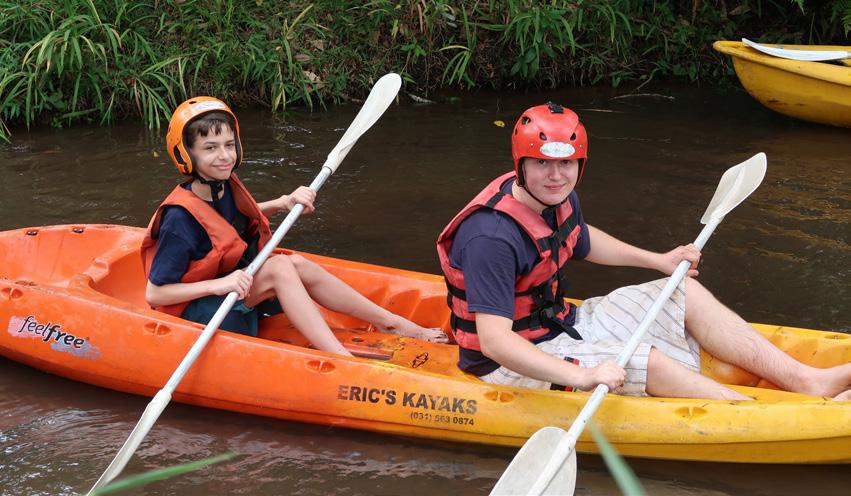
Kerra-Leigh Engelsman echoes the sentiment with her
enthusiastic account of her child's first day at Curro Online. “The positive energy and warm camaraderie enveloped him, making it clear that this was a space dedicated to fostering growth, inclusion and genuine connections,” she says. Her revelation about the outstanding communication between the school and parents underscores the commitment to transparency and collaboration that Curro Online upholds.
Most curricula and schools incorporate art – especially during the primary years. This subject sometimes has the reputation for being a time when kids can take a break from the “real work”, which is why its importance as a developmental tool for critical thinking isn’t well understood.
However, parents can use art to the great advantage of the child, if they know how important its role is and how to practically instil education in and appreciation of art, says Hugo.
“Art incorporates all the important factors required in critical thinking – observation, reflection, interpretation and application,” she says.
“Parents of younger children know this scenario well: your child gives you an artwork that they drew. You praise their good work, stick it on the fridge door and move on. However, by spending more time discussing what went into the construction of the drawing, you can gain invaluable insight into your child’s thinking, as well as develop their ability to communicate their thinking,” she says.
Hugo advises parents to ask their children specific questions about their artworks, such as: “What is that you drew there?”, “Why did you decide to do this?” and “Why did you choose these colours?”
Desirée Hugo, Academic Head of ADvTECH Schools, explains practical ways to go about art education and appreciation that will help develop a child’s critical thinking skills



“When you hear their explanations of their thoughts, it opens a window into their world and elevates their work from just another pretty piece to an opportunity for connection and discussion. It’s important that parents take the time and make the effort to do that,” she says.
“If you ask someone to draw a flower, they’ll typically draw the one we all do from memory, with the circle in the middle, the little arches around the circle and a stem, with perhaps a leaf or two.
But if you put a flower in front of a child along with a magnifying glass and ask them to draw what they see, you’ll find that they do a greater dive into deep observation,” she adds.
Four practical ways that art can develop critical thinking skills

• Open-ended art projects. Provide opportunities and materials for children to freely express themselves without tight guidance or direction on expected outcomes or deliverables. This helps them assess the tools at their disposal, use their imagination and problem-solving skills and hone their craftsmanship.


• Artistic analysis. Expose children to a wide range of art and lead in-depth discussions about their observations. What do they think the artist was thinking,
why do they think certain choices were made in creating the artwork, how does the art make them feel and what do they see in it? This develops their visual processing skills, linking them up to their analytical skills.

This helps them visualise the problem and brainstorm, all while exercising creative muscles.
“Imagine believing that children have the ability to express themselves in more than one way. Now times that by 100, if they’re given the tools and encouragement to extend their potential range,” says Hugo.

• Combining art and stories. Extend the art lesson by tasking them with developing stories based on their work. These stories can include characters and character development, plotlines and inspiration for followup artworks.
• Combine art and academics. Maths problems have long been approached by drawing a simple sketch of them. This can be extended to various other subjects by asking children to create a visual representation of the matter before them, as well as their proposed solution.
She notes that Loris Malaguzzi, founder of the Reggio Emilia Approach, described the “infinite ways that children can express, explore and connect their thoughts, feelings and imaginings” as follows: “These languages (the Hundred Languages of Children) are symbolic and are open to the endless potentials in children. They believe in the potential of a child's ability to wonder. It’s the belief that there are ‘multiple ways of seeing and multiple ways of being’.”
“A high-quality, holistic academic offering will consider this approach to all learning, to ensure children build critical thinking skills, while being offered opportunities to enquire and develop creative theories,” says Hugo.
South Africa’s education system is currently facing unprecedented challenges, with many of the country’s youth struggling to access quality education.
Access to education is widely recognised as a basic human right and the United Nations has set the objective of ensuring “inclusive and equitable quality education and promoting lifelong learning opportunities for all” by 2030. UCT Online High School stands steadfast by its vision to liberate learning and understands that this requires determination to dare greatly as it continues to leap into the unknown. “We won't fix South Africa’s education system by continuing to do the same things and hoping for a different result,” says Grant Ruskovich, Chief Partnerships Officer at UCT Online High School. “Now is the time for bold action.”
With the above in mind, and with the kind and generous support
The UCT Online High School Learning Liberated Scholarship Programme has been launched to invest in the education of talented learners from economically disadvantaged families, who demonstrate academic potential, have tertiary education and career aspirations and the intent to make a positive and impactful contribution to our nation. Grant Ruskovich, Chief Partnerships Officer at UCT Online High School, answers questions in relation to the programme
of numerous corporations and sponsors, the UCT Online High School Learning Liberated Scholarship Programme has been launched with the purpose to invest in the education of talented and deserving learners across the country from economically disadvantaged families. The programme is offering a solution that is both innovative and accessible.
What is the UCT Online High School Learning Liberated Scholarship Programme?
The Learning Liberated Scholarship Programme offers partial scholarships for January 2024 to make education more accessible to a diverse range of learners who may not afford the full tuition. This approach allows for more efficient distribution of financial aid, supporting a larger number of learners with

available funds. Additionally, funding through donations and philanthropy increases support for the programme, as donors can see their tangible impact on multiple learners. Partial scholarships also foster a sense of commitment among recipients to maintain academic performance, leading to higher success rates.
Why was the programme launched? It’s time to think differently about the education model this country needs to provide inclusive and equitable
quality education to all. This scholarship programme has been launched because UCT Online High School believes that ambitious, intrinsically motivated and responsibly minded young people have the potential to access leading tertiary institutions for further education.
What does the programme offer learners? Together with UCT Online High School’s notable corporate and philanthropic partners, the programme offers partial scholarships for 500 deserving learners in grades 8-11 across the country who might otherwise not have the opportunity to pursue their educational goals
What criteria must be met for a scholarship applicant to be considered as a candidate?
To be considered for a scholarship, the applicant must:
• be a South African citizen residing in the RSA
• be interested in completing a National Senior Certificate (CAPS)
• be age-appropriate for entry into Grades 8-11
• have achieved 60% and above in English home language and mathematics
• be in financial need (combined annual household income
cannot exceed R350 000 or R29 000 per month)
• have tertiary education and career aspirations after high school and must submit an “Aspirations and Academic Journey Letter”
• have an enabling learning environment (laptop, Internet access, printer, earphones and a UPS device)
• have a least one adult champion/ supervisor to support their online education experience
• submit an “Applicant Reference Letter” from their current school
• successfully complete a “Scholarship Application Assessment”
• submit all required documents
When do applications open and close? Applications open on 4 September 2023 and close at midnight on 31 October 2023. All applications will be reviewed for shortlisting by the end of November 2023, with successful recipients notified in early December 2023. These successful recipients will begin their schooling on 15 January 2024 at UCT Online High School.
To see if you qualify for the UCT Online High School Learning Liberated Scholarship Programme, visit the website (https://www. uctonlinehighschool.com/scholarships) for more details.


“It’s time to think differently about the education model this country needs.”
For children, teens and adults with executive function challenges, the smallest project or task can be overwhelming. Planning and prioritisation are essential skills for initiating tasks and following through, writes Dalena van der Westhuizen, cognitive development specialist, master brain coach and co-founder and MD of BrainAbility
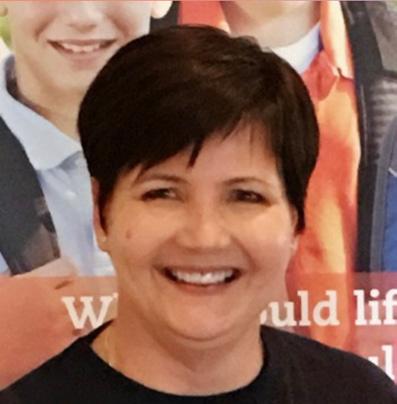

We all sometimes feel stuck on a big task or project, unsure of how and where to begin and simply postponing it until the very last minute. It can be overwhelming when we find it difficult to break down and plan a task or project, or decide which of our many tasks should take preference over the others.

For some people, however, this is a daily struggle. And while a single Internet search may yield many so-called reasons for procrastination – such as stress, anxiety or fear of failure – there’s another important and often overlooked reason: weak executive function skills.

What are executive function skills?
Executive function skills are often described as “the management system of the brain”. That’s because they help us set goals, plan and get things done. Important executive function skills like planning and prioritisation enable us to develop a roadmap of what needs to be done when.
(To learn more about executive function skills, read: Is Your Child Lazy? in issue 6 of SAHS & Beyond.)
Why are planning and prioritising important? Planning is about determining all of the tasks you need to complete in order to achieve your goal or finish a specific task. By getting a clear understanding of these tasks, you can better prioritise and allocate your time.

Prioritisation, on the other hand, allows you to make decisions about what is most important and what is less important so that you know what to focus on. Being able to discern between tasks that are most urgent and less
urgent is a crucial skill for school, work and life in general.
People with weak planning and prioritisation skills find themselves impaired before they even begin an assignment or a task. They have difficulty identifying the steps required to accomplish their goal (eg creating a presentation, doing homework, cleaning their room, etc) and can’t decide what information and tasks are important to address and in which order they should do so.
How to recognise weak planning and prioritising skills
Here are some traits and frustrations you might recognise:
• Having trouble starting and/or completing tasks.
• Starting projects, but failing to finish them because of difficulty following the steps required.
• Finding it difficult to remember and follow all the steps within familiar tasks, such as getting dressed, packing a bag for school/work, etc.
• Struggling to figure out the most important work/ assignments to complete first.
“Being able to discern between tasks that are most urgent and less urgent is a crucial skill for school, work and life in general.”
a to-do list. Remember, when you set time blocks and due dates, include a catch-up day or two to allow for unexpected delays.
3. Decide how to prioritise
• Having trouble when there’s more than one item on your “to-do” list.
• Struggling to create a verbal or mental picture of the steps/ sequence of a project/task.
Can planning and prioritising skills be improved?
Yes, they absolutely can!
Like most skills, planning and prioritisation can be improved with the right intervention. There are also a few tried and tested strategies you can apply at home or the office:

1. Be clear about the end-goal
It’s simply impossible to plan if you don’t know what you’re planning for. That’s why it’s so important to articulate what a successful end-goal looks like before getting started on a project or a task.
Use this process to create a checklist of the most important elements of that goal; it’s a great planning tool that will also support self- and task-monitoring.
2. Remember, planning is part of doing. Many people simply skip planning because they don’t consider it a part of doing. They just want to get started. However, it’s important for you to reframe that: planning is doing something. It ensures that you don’t miss important steps of the task and it lowers stress levels by breaking multi-step to-do items into manageable parts.
One of the best strategies for planning is time-boxing. Box or block out time in your day/ calendar for specific tasks, instead of simply writing them on
Deciding what to do first is tough, particularly if you don’t distinguish between “need-to’s” and “wantto’s”. Try using something as simple as a “1, 2, 3 system” where “1” means this needs to happen now/as soon as possible, “2” means it has to be done as soon as the 1’s are done and “3” means it’s the least urgent and last thing to be done.
Whichever prioritisation system you settle on, practise sorting a few example tasks so that you can adjust the system and be sure that it’s effective, yet easy enough to implement.
4. Keep practising and adjusting. Keep practising your skills by asking questions to plan and prioritise everyday (school, work and home) tasks and projects. Use questions like:
• What’s the most important thing to get done today?
• When will I be able to do that?
• What are the steps I need to follow to complete each task?
• Can any of those things be done on a different day or at a different time?
Here’s to better planning and prioritising!












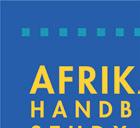


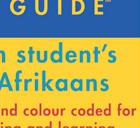








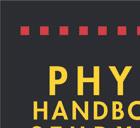






















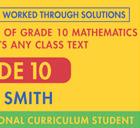
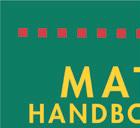










































You don’t need to break the bank for outdoor experiences the whole crew will remember forever. Here’s our list of 20 of the best simple, but fabulous spring activities for families:

1
Get gardening
Nothing says “spring” like flowers. Sow seeds and watch them grow. Then gather them and make bouquets for families and friends.
4
Go for a bike ride
Family bike rides can provide additional bonding time, while keeping the kids happy and healthy.
Play frisbee
Pack a frisbee, head to a local field and have fun!
3
Have a picnic
Pack a basket of goodies and sprawl on a blanket in the park (or your backyard) while enjoying the sun.
Shake off the winter blues and try any of these fun activities that will have the whole family enjoying the fresh air and the new season
5
Wash the family car
Who said chores can’t be fun? Make a splash with this allhands-on-deck activity. Grab a bucket and sponges for everyone and suds up your family’s beloved vehicle for a productive outdoor activity.
6
2 7
Make a bird-feeder
Attract birds to your natural spaces by making a cute and creative bird-feeder. Then fill it with nuts and seeds.
Go fishing
Fishing trips with my dad are among the best memories of my childhood. It’s an activity that gives you undisturbed time to just enjoy each other’s company. Catching a fish or two is a bonus!
8
Have an outdoor movie night
Grab a bed sheet and project your favourite film in the backyard for a fun family movie night.
Get outdoors and capture Mother Nature’s unmatched beauty, as well as the fun and silly moments of all of you together. Print the photos and keep them in a scrapbook or album.

10
Head to a nearby park (or your backyard) on a sunny day to fly a kite as a family and watch everyone having the time of their lives chasing it. For even more fun, make your own kite at home first.

Your local library is an ideal place for children to play, discover, make friends and have fun.
Roller-blading or ice-skating with the family is a great way to stay active and let loose together.
13
15
Getting out in nature boosts moods and improves cognition. It’s also an opportunity to take in the beauty of the outdoors while incorporating physical activity.
16
Spruce up your driveway with your wildest creations.
17
Pack up the car and take a weekend road trip to somewhere you haven’t been before.
Use a telescope or just sit outside and look at the beautiful constellations on a clear spring night. Try to identify the stars you see. Alternatively, take the family to the local planetarium (if there’s one near you) for a wonderful and educational trip to the galaxy.

Visit the nearest campground or put up a tent in the backyard where you can toast marshmallows in a fire, tell ghost stories and enjoy the balmy weather.
18
Teach your kids about the different bird species.

19
If you have a patio or verandah, put it to use by playing a card game outdoors.
20
From horse-riding and picking vegetables to interacting with animals, farm life is the good life! Some farms even offer interactive tours.
Gather the family, get outside and create simple, yet unforgettable memories that will last a lifetime!

In today’s ever-evolving digital landscape, where data is the new currency, the demand for skilled data management professionals is increasingly apparent, writes
Nora van Schalkwyk, Head of Finance and HR at Data Management Professionals SA
As a critical, ethical, legal and operational concern in modern business, data protection and management are essential for maintaining business continuity. Yet many graduates seeking a career in information technology (IT) are drawn towards other technology paths. Areas such as artificial intelligence (AI) and app development may seem more enticing and glamorous, yet there are many opportunities, multifaceted functions and inspiring success stories that render a career in data management ripe with potential.
The surge in demand for data management skills can be attributed to the exponential growth of data generated and collected by businesses. As companies continue to gather massive volumes of data, they
face the complex challenge of managing and protecting this treasure trove. Data breaches and privacy concerns have further emphasised the need for robust data management practices. As a result, the role of data management professionals has become indispensable in protecting data, ensuring business continuity and supporting compliance.
While AI and app development often steal the limelight due to their perceived glamour and innovation, data management tends to remain in the shadows. The allure of creating cutting-edge applications and AI-driven solutions often overshadows the foundational role data management plays in the tech ecosystem. Graduates are frequently drawn to the allure of instant gratification that AI and app development seem to promise, leading to an oversight of the long-
term benefits that a career in data management can provide.

Data management encompasses a wide spectrum of functions, each contributing to efficient data accessibility enabling utilisation. These functions include data protection, back-up and recovery, archiving and storage solutions. Data protection ensures that data remains secure and available, even in the face of disasters. Importantly, it guards against data loss, while archiving preserves historical data for compliance and analytical purposes. Efficient storage solutions optimise data retrieval and utilisation, enhancing overall business efficiency.
For graduates considering a career in data management, a world of prospects awaits. The era of data-driven decision-making has created an insatiable demand for skilled professionals who can manage, protect and recover all data types, including desktop and laptop endpoints, SaaS applications, databases and virtual and physical server infrastructures, whether onpremises, in a cloud or for a hybrid environment. Organisations across sectors recognise the pivotal role of data in gaining competitive advantages and driving innovation while sustaining
operations, and are acutely aware of the risks if data is lost. Data management professionals are positioned to play a key role in the implementation, support and management of back-up and recovery solutions that provide a robust foundation for the protection of data against corruption, accidental deletion and even cyber-attacks. In the event of a massive loss of information, data management professionals are involved in disaster recovery to ensure the restoration of data with full integrity validation, compliance verification and maximum business continuity.
Moreover, the collaborative nature of the data management field offers graduates the chance to engage with diverse teams, bridging the gap between technical knowledge and realworld applications. Internships provide a platform for hands-on experience, enabling individuals to refine their skills, adapt to industry tools and gain exposure to practical challenges. By participating in these immersive learning opportunities, aspiring data management professionals can foster connections with mentors and industry experts, further enhancing their understanding of the field and increasing their chances of longterm success.
Internship programmes and hands-on projects are invaluable tools for graduates to gain practical experience in data management roles. These initiatives provide exposure to real-world challenges and opportunities, helping participants understand the intricacies of data management beyond theory. Interns can actively engage in crafting data protection policies, applying security measures and enhancing storage solutions. This first-hand experience equips graduates with the skills and insights needed to excel in data management careers.
“Graduates are often drawn to the allure of instant gratification that AI and app development seem to promise.”

Spring is here! The weather’s warming up and a whole new array of fruit and veggies are coming into season. The best way to enjoy them is in a fresh salad that the whole family will enjoy
Beetroot, feta and rocket salad with peanut brittle

Preparation time: 15 mins
Ingredients:
1kg small beets, pre-cooked
1 red onion, sliced
1 x 125g packet mixed leaves (rocket, spinach and watercress)
100g feta, cut into cubes
100g peanut brittle bar
15ml (1T) pumpkin seeds
Salt and black pepper to taste
Salad dressing:
75ml (5T) extra-virgin olive oil
75ml (5T) orange juice
7,5ml (1½ tsp) Dijon mustard
A pinch of salt and pepper
What you will need:
A chopping board
A cutting knife
A small mixing bowl
A large salad bowl
Method:
1. Place the leaves in a large salad bowl.
2. Add the onions, beetroot and feta.
3. Break the peanut brittle into small pieces and add to salad.
4. Scatter over the pumpkin seeds.
For salad dressing:
1. Whisk together the orange juice and Dijon mustard.
2. Whisk in the olive oil and add the salt and pepper.
3. Pour over the salad just before serving.
Bacon, avo and Parmesan croûton salad
Preparation time: 40 mins
Cooking time: 20 mins
Ingredients:
For salad:
1 x 120g packet rocket
3 ripe avocados, peeled and cut

For croûtons:
1 loaf ciabatta, cut into 2cm cubes
45ml (3T) olive oil
45ml (3T) grated Parmesan cheese
Zest of half a lemon

For salad dressing:
30ml (2T) Dijon mustard
10ml (2 tsp) honey
Juice of half a lemon
30ml (2T) mayonnaise
60ml (4T) olive oil
What else you will need:
A baking tray
A sharp knife
2 x medium-sized
A grater (for the lemon zest)
A salad bowl
the olive oil, Parmesan and lemon zest.
4. Toss the ciabatta pieces until covered. Add salt and pepper.
5. Arrange the ciabatta pieces on the baking tray and bake for 15 mins, or until golden-brown.
6. Remove from oven and set aside to cool down.

For salad:
1. To assemble the salad, place the rocket leaves in a salad bowl and top with avocado, feta and fried bacon.

2. Add cooled croûtons.
For croûtons: Pre-heat the oven to 180˚C. Spray a baking tray with Spray and Cook.
Place cubed ciabatta pieces in the mixing bowl and add
For dressing:
1. Whisk all the ingredients together.
2. Drizzle over salad, toss lightly and serve.
Anri Fourie, owner of two guesthouses and mom of an eight-year-old daughter and four-year-old triplets, cooks meals that are quick and easy to make – with multiple little helping hands. In the Fourie household, family time is a great time to cook together. As the former owner of a coffee shop, Anri used to share the kitchen with skilled chefs. Today she shares it with her four busy little offspring, who’re all eager to pitch in and help.

Soccer promotes teamwork among kids and helps them get along with others outside the sport too
Even the greatest soccer players of all time relied on their teammates to make it “the Beautiful Game”. The saying that “Theres no ‘I’ in ‘team’” is perfectly exemplified in this sport.
There are many benefits to children playing soccer, both physical and social. Here are a few:

Physical advantages are minimised. In comparison with many other sports where size, speed and strength provide huge advantages, soccer players can do well even if they’re not as big, fast and strong by

developing good ball skills or a great defensive technique.
It improves physical health. Soccer is a great form of exercise that helps kids improve their endurance, agility, balance and co-ordination. Regular soccer-playing can help children build strong bones, develop muscular strength and maintain a healthy weight.
It’s easy to learn. The relative simplicity of soccer makes it an easy sport for beginners to pick up. In youth soccer, the
rules are much simpler than they are in competitive ranks. While mastering football takes some practice, it’s an ideal sport for novice athletes looking for an activity that isn’t complicated.


Almost anyone can play. There’s a reason soccer is a world sport – it can be played by almost anyone, anywhere. All you need is a pair of soccer boots, a ball and a flat, open space. There’s no need for expensive equipment or clothing.
It’s safer. Compared with many other youth
sports, soccer is a non-contact game and far safer, with a smaller incidence of severe injuries. Most injuries are relatively innocuous, such as sprained ankles. In sports like rugby, debilitating injuries are far more common.

It teaches discipline. Soccer requires focus, discipline and dedication, which are valuable life skills that can be applied to other areas of a child’s life. By practising regularly, kids learn the importance of hard work and perseverance.
of achievement and confidence in their abilities. As they improve their skills, they gain a feeling of pride and accomplishment that can help build self-esteem. It teaches social skills. Soccer is one of the best sports for improving children’s social skills. Communication and co-operation are vital for playing the game and passing the ball. Children also improve their teamwork skills and often make great friends at the same time.
It provides a sense of community. Soccer is a popular sport around the world and playing it can help children feel a sense of belonging to a larger community.
There’s always room to grow. Anyone who can run and kick a ball can play soccer, but for those wanting to improve, there are always more skills, moves, tricks and strategies to learn and develop in order to continually improve their game.
It’s a lifetime sport. Soccer can be played well into a person’s adult years and there is ample opportunity to do so. There are tons of soccer leagues which give people the opportunity to play with other players at similar age and skill levels.
It’s fun. Soccer is the most popular sport in the world for all the reasons mentioned above, but –above all – because it’s fun to play!
It teaches fair play. Fair play is a fundamental part of soccer. Bad sportsmanship is punished through the card system and positive behaviour is encouraged. Children learn to play by the rules and respect fellow participants and officials.

It boosts confidence. Soccer is a sport that rewards effort and hard work and helps children develop a sense
If you’re looking for an engaging and fun sport for your child, soccer is an excellent choice.
“Soccer is one of the best sports for improving children’s social skills.”
BELLAVISTA SHARE provides ongoing professional development for educators and health professionals. Our wealth lies in our professional knowledge, experience, and collective expertise. BELLAVISTA SHARE is a resource to support educators and therapists in their professional development. We host workshops, evening talks and conferences in addition to active mentoring programmes, we support homeschooling programs with our content. “Share














what we know; Help where we can; Advise and assist; Resource and equip; Educate others”.
SUPERNOVA MAGAZINE TAKES YOU AND YOUR
















PUBLISHED IN SOUTH AFRICA FOR PRE-TEENS, IT’S DESIGNED TO INCREASE READING SKILLS AND CREATE A SAFE, FUN SPACE FOR LEARNING.

GET YOUR NEW ISSUE EVERY 2 MONTHS.
CHOOSE A SUBSCRIPTION OPTION THAT SUITS YOU.





LAST CHANCE TO ENTER!

This initiative is aimed at encouraging children to express themselves through drawing, inspiring creativity, stimulating the imagination and encouraging artistic skills. There are four age categories, all with the same theme.
5-8 years, 9-12 years, 13-17 years and 18-21 years
Entries must be e-mailed to: sahomeschooling@isikhova.co.za with “Drawing Competition” clearly stated in the subject line along with:
Your full name Contact number
Child’s name and age Title of drawing
The competition will run for two issues, this being the first. Every fortnight we’ll post a section of entries from each category on our social media pages. Winners’ names will be announced in our last issue of the year, online in November.





















